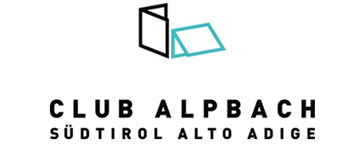Seminar 03 – An Energy Transition for the Future
It is my first time at the European Forum in Alpbach. I enrolled myself into the seminar An Energy Transition for the Future as it is a topic of upmost importance and urgency but at the same time generating a lot of buzz.
At the kick-off presentation of the seminars right upon my arrival in Alpbach this energetic man with grey hair and black sweater walked to the podium. In five minutes of presentation he showed what he is made off: vast general and specific statistical knowledge of the history of humans, energy, economics and society.
The next day I assisted to his seminar and every second of it is just pure brilliance – just facts, no predictions. The hard truth.
The essence of the seminar can be summarized with one of his quotes:
The best energy transition is the one that never happens.
What the citation means: people have to change their consumption behaviour and live more consciously. There is absolutely no need to find new energy sources, for instance renewables, so that the human species can continue increasing its consumption, economic growth and therefore energy use. His thoughts splitted the overcrowded seminar room into two groups. The ones – like myself – completely agreeing with him, despite his overly pragmatic statements and those arguing against him. The latter group even got the point of proposing an alternative seminar called Taskforce.
Vaclav Smil is a Distinguished Professor Emeritus at the University of Manitoba, a Fellow of the Royal Society of Canada (Science Academy), and the Member of the Order of Canada; in 2010 he was listed by Foreign Policy among the top 100 global thinkers. He does interdisciplinary research in the fields of energy, environmental and population change, food production and nutrition, technical innovation, risk assessment, and public policy. He has published 35 books and more than 400 papers on these topics.
He works as a consultant to Warren Bufett and Bill Gates, two of the richest man alive today. The latter included Mr. Smil in his annual book list which led to the rise of his popularity.
In addition to the absolute necessity to change our consumption there was an other main take away, regarding renewable energies. The day will come where we will be greener (not entirely green, as that seems to be impossible) but that day will for sure not be in 2020, as Germany plans to do, and neither in 2050. It will happen close to the end of next century – the year 2100. The world does simply not dispose of the technology yet to power all the consumption of today nor the consumption of tomorrow, which will drastically increase as China (1,4 billion people), India (1,2 billion people) and sub saharan stars like Nigeria (120 million people) will be able to adapt to the Western way of living due to economic success.
There is a historical reason to it as well. Each major energy source that has dominated world supply (coal, oil,natural gas, modern renewables) has taken 50-60 years to rise to the top. Figure 1, taken from his publication in Scientific American in January 2013, shows that renewables are far away from taking on a crucial role in providing the world with energy.
The reason why this seminar was so challenging and eye-opnening was the fact that he, as well as Mario Giampietro, his co-lecturer who is defenitely worth another article, made us rethink our own beliefs and thoughts. Three more main thoughts of the seminar follow the same line:
- Climate change is not happening as statistic shows.
- Bio-fuels, burning food in order to generate energy, is a totally irrational way of providing energy.
- Europe overestimates its position in the world. With just about 500 million people we will hardly have any impact on world’s energy supply, demand, emissions and so on.
To conclude, I think Mr. Smil is the essence of the European Forum Alpbach. He challenges existing views on the world by relying on solid studies and facts. Thats the principle every professor, student, journalist and politician should follow. We would have a much more informed and therefore sensitive, conscious and sustainable world, and much more informed decision making.
By the way, sustainability is the word he hates the most.
by Franz Tschimben
Alpbach, August 19th 2014


 Italiano
Italiano